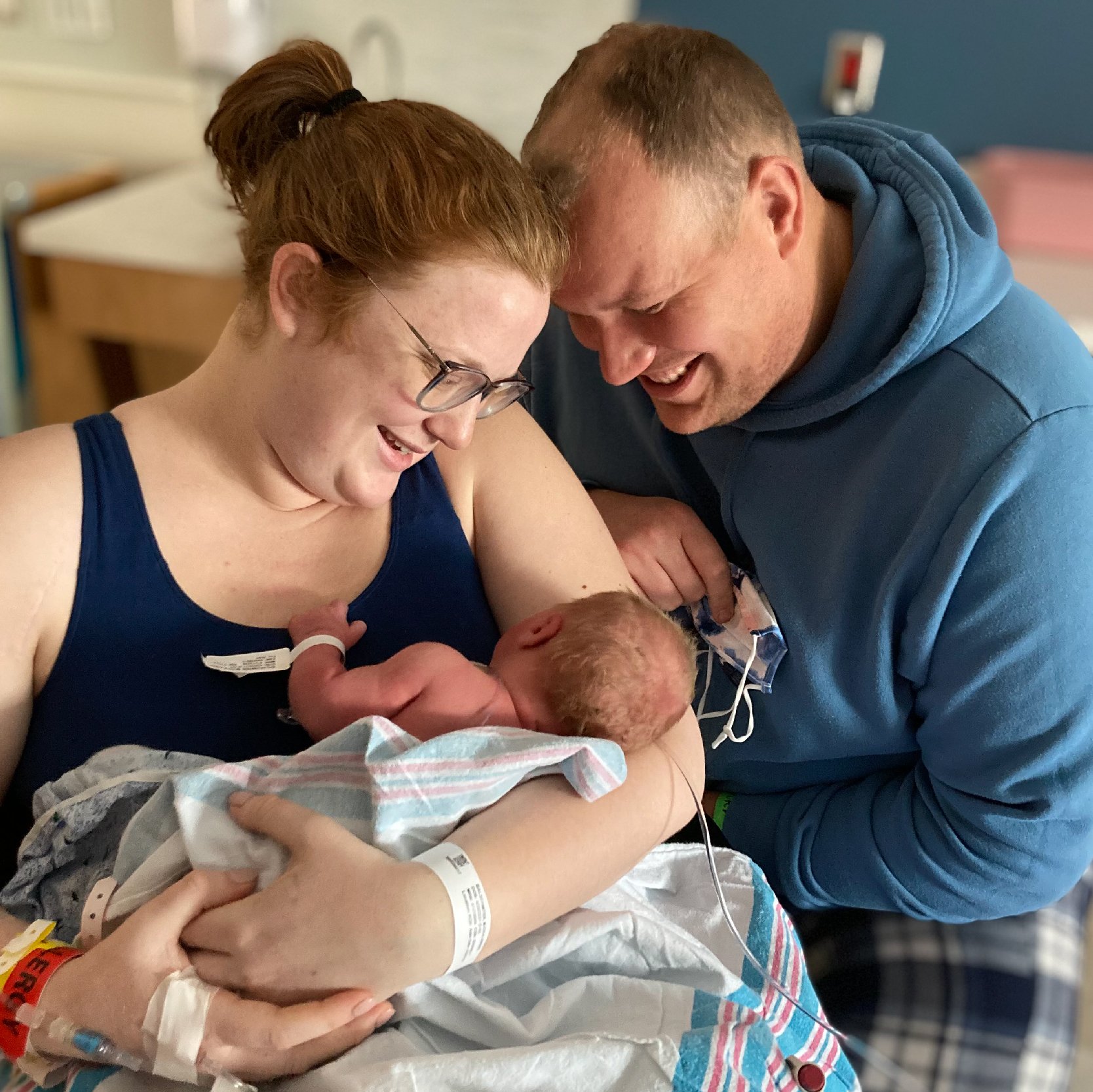Key Takeaways
- Classes are available to educate patients and support persons about the 2nd and 3rd trimester, supporting labor, induction, breastfeeding, and more.
- Both in-person and virtual classes are offered through Rochester Regional Health for patients and their support person.
- All classes through Rochester General Hospital are offered at no cost and are available to the community.
Congratulations – you’re having a baby!
There is a lot to prepare for in the weeks leading up to delivering your baby, and we are here to make sure you are feeling confident and equipped.
Classes run by Rochester Regional Health offer practical education for soon-to-be parents on what to expect before labor begins, developing a plan for labor and delivery, and the first hours and days spent with your newborn.
Kerry Snyder-Torres, RN, is a perinatal educator at Rochester General Hospital, and a doula with 17 years of experience who has taught hundreds of expecting parents, their family members, and their babies. She shares what to look forward to in these classes.
Classes offered for childbirth and prenatal education
There are several classes offered through Rochester Regional Health, both virtually and in-person at the Center for Workforce Development in Irondequoit.
Prenatal (2nd trimester)
Availability: In-person
Description: This 2 ½ hour class offers information about the continued development of your baby, ways to care for your own physical and mental health through week 27 of your pregnancy, and thoughtful discussions about your labor experience, preparing your body for labor, and who you would like as a support person(s) through labor.
Prenatal (3rd trimester)
Availability: In-person and virtual
Description: This program of 3-hour sessions runs for 4 weeks and provides information about several topics leading into the final weeks of pregnancy, labor and delivery, and post-partum. Discussions include an overview of the 3rd trimester and labor; comfort techniques and planning for birth; medical procedures and a review of movement/comfort techniques; and the first hour, postpartum in the hospital, and the first six weeks at home.
Supporting Labor
Availability: In-person
Description: This 3-hour class informs pregnant patients and their support person about ways to move through labor both at home and the hospital. The patient and support person will learn together about signs, signals, movement, and other elements of the labor process as you both prepare to deliver your baby.
Induction Information
Availability: Virtual
Description: This new 1 ½ hour class is offered weekly. Attendees will learn about why patients are induced for labor, what the induction process looks like from beginning to birth, and ways to prepare for the induction experience.
What to know before coming in
Parents should be prepared to know where to go and when to come to the hospital to welcome their baby into the world. Prenatal education gives families the opportunity to learn all of their options, then use their education to make informed choices about their individual birth experience.
Before coming in, prenatal classes will help you to:
- Determine when to labor at home and when to come in
- Know what to bring with you to the hospital
- Become knowledgeable of non-medicated comfort measures and pain management techniques, along with medications
- Create a labor and delivery plan for you and your support person
- Learn about medical and pain management options
Tours of our childbirth centers are available both in-person and virtually for any patient who requests one.
What to look for in a good prenatal course
Most hospitals and birthing centers offer some form of a birthing or labor & delivery class ahead of time to prepare mothers, along with their partners and families.
There are several features to consider.
Interactive: Having a course that allows individuals to have a dialogue with their nurse educator are beneficial for both those taking the course and those teaching it.
Flexibility: Families who may not be physically in the same place for various reasons can log into a virtual session and participate from different locations
Follow up with educators: The people who run the program should be invested in the families who take part in the classes. Being available for follow-up questions after a session or even after the classes are finished builds trust both with the instructor and the healthcare system.
Cost of classes: All prenatal education and birthing classes through Rochester General Hospital are offered at no cost to all attendees, regardless of whether they are a patient of Rochester Regional Health or another health system.
“Having information or knowledge is power,” Snyder-Torres said. “Being informed helps you to have a better birth experience. Knowing what your options are and how birth works in a hospital setting decreases fear and anxiety, and builds up confidence.”









